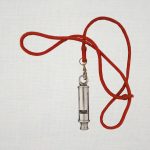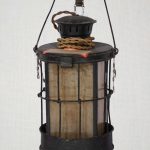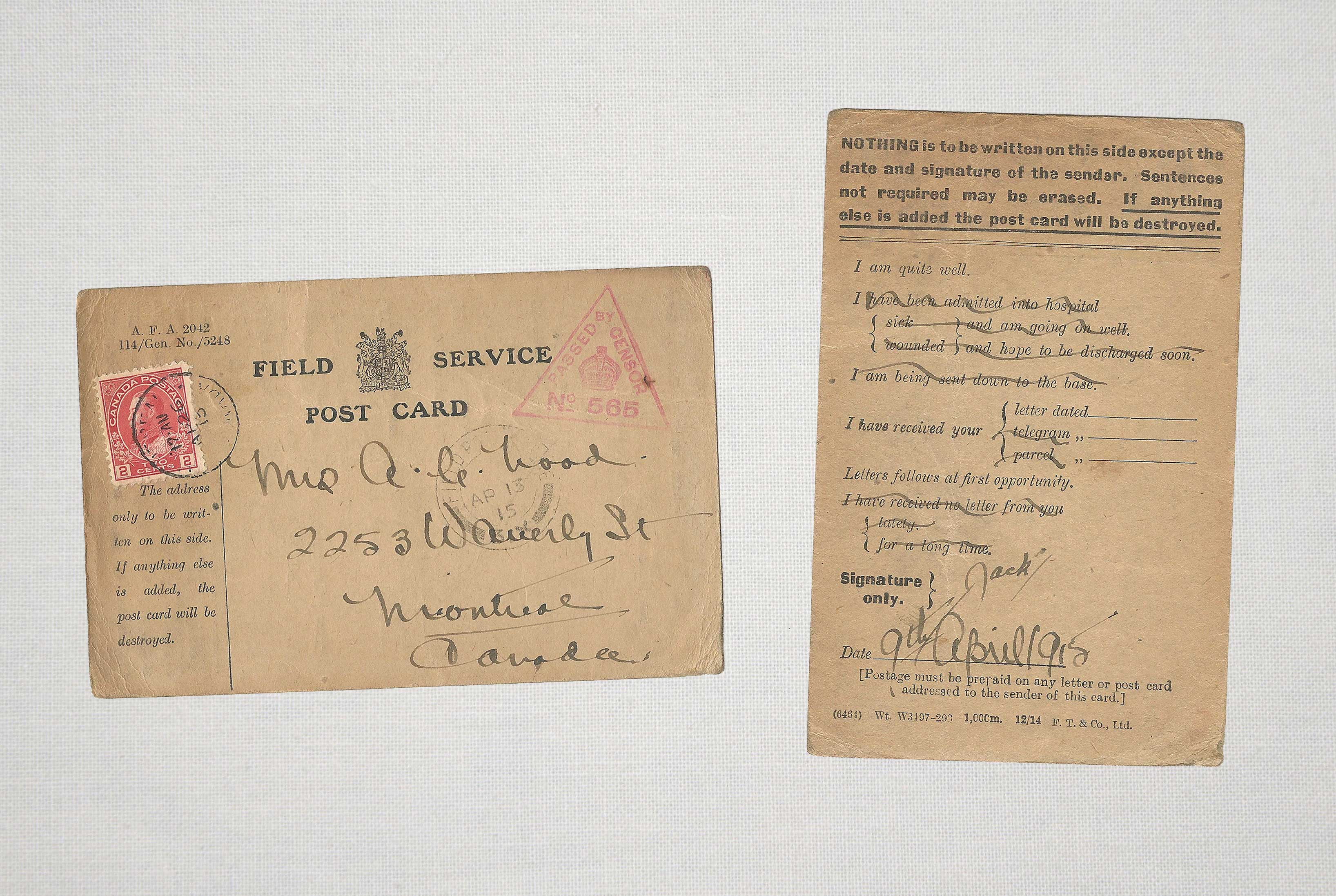This is an example of a pre-printed postcard that was given to soldiers so that they could selectively update their families as to their condition in very general terms.
Censorship of soldiers’ letters was normally undertaken by regimental officers. Its main purpose was to avoid mention of operational details that might prove of value to the enemy. Forbidden information included references to locations, numbers of troops, criticism of superiors and even the weather (which might indicate the state of the trenches). However, letters were an important way to maintain morale and freedom of expression was widely indulged.
Postal censorship is the inspection or examination of mail, most often by governments. It can include opening, reading and total or selective obliteration of letters and their contents, as well as covers, postcards, parcels and other postal packets. Postal censorship takes place primarily but not exclusively during wartime and periods of unrest, and occasionally at other times, such as periods of civil disorder or of a state of emergency.




